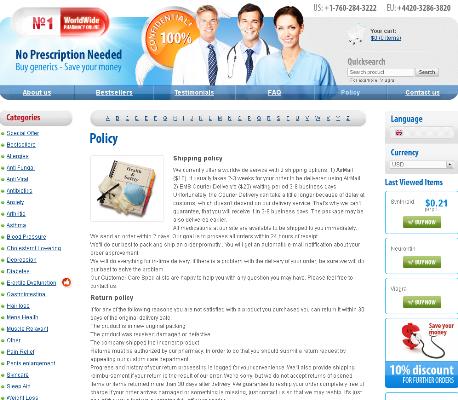| Royal City Drugs |
To Visit Online Pharmacy Click HERE ↓
Common Side Effects of Lipitor and Management Tips
Understanding How Lipitor Works in the Body
Imagine your liver as a bustling factory, constantly processing the fats swirling in your bloodstream. Lipitor, known scientifically as atorvastatin, acts as a foreman, instructing this factory to slow down cholesterol production. It specifically targets an enzyme crucial for creating “bad” LDL cholesterol, which is responsible for clogged arteries. By lowering LDL, Lipitor helps keep blood vessels clear and healthy, reducing the risk of heart attacks and strokes. But Lipitor doesn’t just work in isolation; it also exerts a small effect on raising your “good” HDL cholesterol and lowering triglycerides, offering broader protection for your heart over time.
| Effect | How Lipitor Helps |
|---|---|
| Lowers LDL (“bad” cholesterol) | Reduces risk of blocked arteries |
| Raises HDL (“good” cholesterol) | Helps remove excess cholesterol |
| Lowers triglycerides | Further supports heart health |
Most Common Mild Side Effects to Expect

Many people who begin taking lipitor are surprised to notice subtle changes in how they feel within the first few weeks. Fatigue, mild headaches, or low-key muscle soreness can sometimes appear as the body adjusts to this medication. For some, there may be a sense of mild joint discomfort, or a feeling of heaviness in the legs at the end of the day.
It's also quite common to experience changes in digestion, including slightly loose stools or occasional stomach upset. These effects are usually temporary and tend to subside as your system gets used to lipitor.
Others might report trouble sleeping or experience a bit more sensitivity than usual to sunlight. These are not dangerous, but they can be annoying if you’re unprepared for them.
By knowing what’s typical, patients can feel reassured and better equipped to differentiate between normal reactions and signs that might require a healthcare provider’s attention.
Rare but Serious Reactions to Watch for
While most people tolerate lipitor well, it’s important to be aware that unexpected symptoms can sometimes develop. For instance, unexplained severe muscle pain or weakness—especially if accompanied by dark urine—can indicate a rare but serious muscle breakdown called rhabdomyolysis. This condition demands urgent medical attention, as it can lead to kidney damage.
In some cases, lipitor may also affect liver health. Symptoms such as yellowing of the skin or eyes, persistent fatigue, or dark-colored urine could signal liver problems. These signs shouldn’t be ignored, even if they seem mild at first.
Another rare reaction involves allergic responses, presenting with swelling, difficulty breathing, or rash. Quickly recognizing these symptoms is crucial for prompt treatment.
Above all, listen to your body and report any unusual changes to your healthcare provider as soon as possible.
Practical Tips to Minimize Muscle Pain

For many taking Lipitor, the prospect of muscle pain can be daunting, but there are effective strategies to help ease discomfort. Incorporating gentle exercises, such as walking or stretching, can keep muscles flexible and reduce stiffness. Staying hydrated is also important—drinking enough water helps flush out byproducts that may lead to soreness.
If you notice muscle aches, make note of when they occur and how intense they feel. Sometimes, adjusting your daily routine or medication timing can make a noticeable difference. Above all, avoid strenuous activity right after starting Lipitor, giving your body time to adjust. By listening to your body, most people can comfortably stay on therapy.
Managing Digestive Discomfort and Nausea
For some individuals, starting Lipitor comes with mild digestive complaints, such as bloating, stomach discomfort, or feeling queasy after taking a dose. These symptoms often improve over time as your body adjusts, but a few simple strategies can help ease the transition. First, taking Lipitor with a small snack or your evening meal can reduce irritation to your stomach lining and lessen queasiness. Staying well-hydrated is equally vital, as it helps the body process the medication more smoothly.
Consider keeping a journal to track any patterns or possible dietary triggers. Limiting fatty or spicy foods while your system adapts may reduce symptoms. If nausea persists or worsens, never hesitate to consult your doctor, since adjustments to timing, dosage, or even trying another statin could lead to a more comfortable experience.
| Tip | Benefit |
|---|---|
| Take with food | Minimizes stomach irritation |
| Stay hydrated | Supports digestion and absorption |
| Avoid heavy meals | Reduces queasiness and discomfort |
When to Speak to Your Doctor about Symptoms
While many people experience only mild issues when taking Lipitor, it's essential not to dismiss persistent or worsening symptoms. If you notice muscle pain that doesn’t ease up, unusual fatigue, or dark-colored urine, these could signal more serious concerns.
Likewise, sudden swelling, difficulty breathing, or yellowing of the skin require immediate medical attention. Trust your instincts—your doctor is there to help you stay safe and comfortable during your treatment, so don’t hesitate to reach out when something feels off.






Email Us
Fill out all the fields below and press submit, a rep will contact you as soon as possible.

